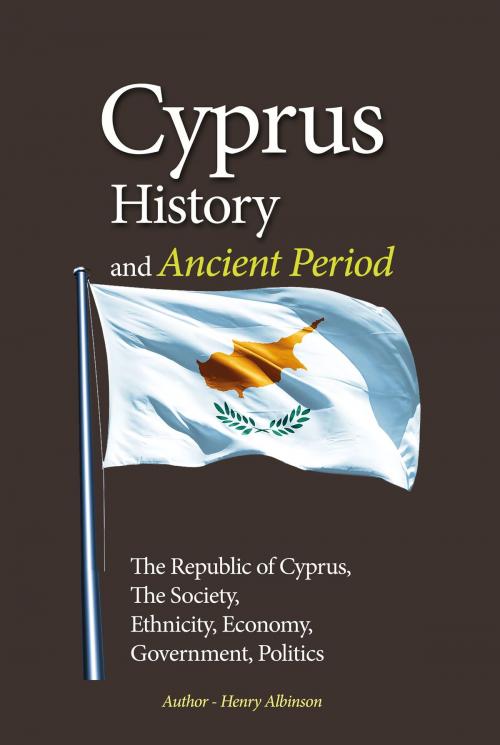Cyprus History, and Ancient Period
Nonfiction, History, Austria & Hungary, Fiction & Literature, Cultural Heritage| Author: | Henry Albinson | ISBN: | 9781310392061 |
| Publisher: | Sonit Education Academy | Publication: | June 25, 2016 |
| Imprint: | Smashwords Edition | Language: | English |
| Author: | Henry Albinson |
| ISBN: | 9781310392061 |
| Publisher: | Sonit Education Academy |
| Publication: | June 25, 2016 |
| Imprint: | Smashwords Edition |
| Language: | English |
The history of Cyprus, also read about Cyprus economy, Cyprus government and politics, Cyprus culture, Cyprus tourism and more
The republic of Cyprus was established in 1960, after the former colony gained independence from Britain. Since 1974, however, a de facto division of the island has existed, with the Greek Cypriot community controlling 63 percent of the territory, and the Turkish Cypriots, backed by Turkish army units, 37 percent. The scene of constant anticolonial and intercommunal strife since the mid-1950s, Cyprus assumed an importance out of proportion to its size and population because of its strategic location and its impact on the national interests of other nations. The island's location in the eastern Mediterranean Sea has made it easily accessible from Europe, Asia, and Africa since the earliest days of ships. Its timber and mineral resources made it important as a source of trade goods in the ancient world, but attracted conquerors, pirates, and adventurers in addition to merchants and settlers. About the middle of the second millennium B.C. Cyprus was subjected to foreign domination for the first time, and from then until 1960, almost without interruption, outside powers controlled the island and its people.
The history of Cyprus, also read about Cyprus economy, Cyprus government and politics, Cyprus culture, Cyprus tourism and more
The republic of Cyprus was established in 1960, after the former colony gained independence from Britain. Since 1974, however, a de facto division of the island has existed, with the Greek Cypriot community controlling 63 percent of the territory, and the Turkish Cypriots, backed by Turkish army units, 37 percent. The scene of constant anticolonial and intercommunal strife since the mid-1950s, Cyprus assumed an importance out of proportion to its size and population because of its strategic location and its impact on the national interests of other nations. The island's location in the eastern Mediterranean Sea has made it easily accessible from Europe, Asia, and Africa since the earliest days of ships. Its timber and mineral resources made it important as a source of trade goods in the ancient world, but attracted conquerors, pirates, and adventurers in addition to merchants and settlers. About the middle of the second millennium B.C. Cyprus was subjected to foreign domination for the first time, and from then until 1960, almost without interruption, outside powers controlled the island and its people.















